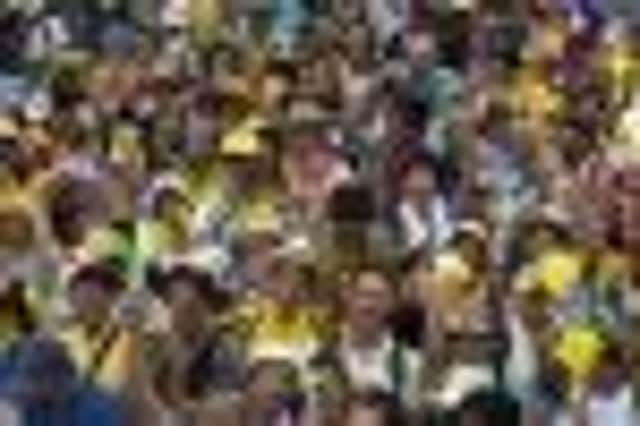Yellow shirts shut down government


About 2,500 yellow-shirted members of the People’s Alliance for Democracy (PAD), a royalist, middle-class movement instrumental in bringing down two governments, blocked cars from entering the compound, forcing some MPs to climb through side entrances to attend the session.
PAD says the reconciliation bill amounts to an amnesty for former prime minister Thaksin Shinawatra, ousted in September 2006 in a military coup before fleeing the country. He is in self-imposed exile, avoiding prison on a corruption conviction he says was politically motivated. His sister, Yingluck Shinawatra, leads the government.
Advertisement
Hide AdAdvertisement
Hide Ad“I have ordered the meeting to be postponed indefinitely to preserve peace in the country,” parliamentary speaker Somsak Kiatsuranont said, as hundreds of riot police secured the area.
In 2008, anti-Thaksin “yellow shirts” barricaded the prime minister’s office for three months and shut down Bangkok’s airports for a week – steps that preceded the collapse of two pro-Thaksin governments.
The number of protesters this time was far smaller than the roughly 100,000 who assembled to oppose past pro-Thaksin governments. But the unrest and dramatic scenes inside parliament earlier in the week in which opposition politicians clashed with Mr Kiatsuranont before police intervened, suggest Thailand could be in for a new phase of political volatility.
Debate on the bill, which proposes an amnesty for anyone guilty of crimes related to the six-year political crisis, could resume on 6 June, Mr Kiatsuranont’s office said. The protesters plan to return on Tuesday, then stay until the legislation is either defeated or dropped.
“To say I’m not concerned, would be wrong,” said Yingluck, whose government won elections last year by a landslide with support from the rival red-shirt protest movement, drawn mostly from rural and urban poor people.
“We need to be calm. This I think is different from past situations because people have learned that all the fighting and the coup are not good and they have suffered for six years, so they won’t do this again.”
It is unclear how much public support PAD has. Ninety-one people were killed, mostly protesters, and many wounded in April-May 2010, as the military-backed government of Abhisit Vejjajiva clashed with thousands of pro-Thaksin “red-shirts”.
The yellow-shirt movement is now “narrower but still deep”, said Chulalongkorn University political analyst Thitinan Pongsudhirak. “If the bill’s rammed through parliament, we can expect more tension and potential clashes,” he said. “Then it will depend on the reaction of the army and the establishment.”